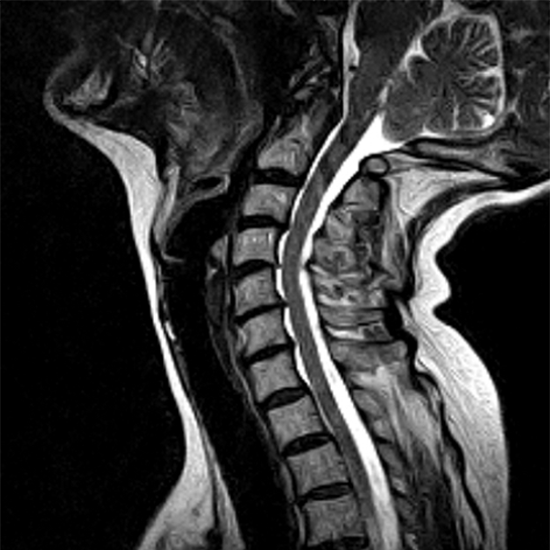Cervical Spine Magnetic resonance imaging (MRI) is an important imaging method that is used to assess the neck and seven cervical spine bones. It detects a wide variety of conditions that affect the cervical spine. It diagnoses structural abnormalities and soft tissue abnormalities within the spinal column. The cervical MRI uses the magnetic field to produce detailed images of the upper spine that resides in the neck area.
Because cervical MRI doesn’t involve radiation to obtain the picture. so, there is no chance of any kind of side effects because of harmful radiation. compared to other imaging techniques, MRI cervical spine is better at visualizing the soft tissues, such as the spinal cord, muscles, ligaments, and discs. So, it is commonly preferred by the doctor.
Why is Cervical Spine MRI commonly recommended?
MRI cervical spine is used to detect and diagnose a variety of conditions of the spinal cord. It detects the degeneration of the discs and vertebrae. The degeneration can lead to various kinds of problems with the nervous system, spinal cord, and the surrounding soft tissues like muscles and ligaments.
Now we will discuss the most common reasons to recommend this MRI cervical.
- If you are suffering from chronic pain in your neck, shoulder, and arm that does go away or get better even after the treatment
- If you are experiencing pain in the Neck along with weakness and numbness in the leg etc.
Apart from these, here are some more reasons doctors ask for cervical MRI such as:
- Spinal cord birth defects
- Spinal infection
- Spinal Injury
- Trauma to the spine
- Multiple sclerosis
- Chronic scoliosis
- Tumor on the spine
- Cervical spine cancer
- Arthritis in the spine
How do I prepare for the Cervical MRI?
Before undergoing MRI Cervical spine, a doctor gives some instructions that patients need to follow to prevent any kind of disruption in the result.
The mentioned below are instructions that patients need to follow before the scan.
- fasting for 4 to 6 hours.
- If you are afraid of closed spaces, you must inform your doctor. So that doctor can give you an alternate solution.
Please inform the doctor, in the case of the following:
- Brain aneurysm clips
- Artificial heart valves
- Heart defibrillator
- Pacemaker
- Inner ear implants
- Kidney disease
- Taking Dialysis therapy
- Artificial joints
- Vascular stents
MRI uses strong magnets. That’s why you need to leave the metal-containing objects be it mobile, Pens, pocketknives, eyeglasses, jewelry, watches, debit cards/ credit cards, hearing aids, hairpins, metal zippers, removable dentures outside the MRI room. Because these things can interfere with the procedure.
How is a Cervical Spine MRI Performed?
The Cervical MRI is a non-invasive and pain-free imaging procedure.
- You need to lie still and motionless on the table during the procedure because the movement can cause errors and blur the images.
- The MRI scanner makes a loud noise while clicking the picture. So, the technologist may give you earphones to block out the noise.
- Technologists sit in another room to observe you and operate the scanner. He will communicate with you through an intercom.
How much time does Cervical Spine MRI take?
The cervical spine MRI takes 30mins to 45mins. But in the case of an MRI cervical spine with contrast, it can take 60mins or more.
What is the price of a Cervical Spine MRI?
Because every diagnostic charges a different amount for the Cervical Spine MRI. So, the price of a Cervical Spine at the MRI Centres in Delhi is around INR 7,000 to 9,000. If contrast media is administered then the cost of cervical spine MRI with contrast is INR 11000 to 13000.
Conclusion
If you or your loved ones are experiencing neck-related issues such as pain, stiffness, reduced mobility, etc. Then there is the possibility that your doctor may ask you to get a cervical Spine MRI to diagnose the problem and its causes for accurate treatment planning.


